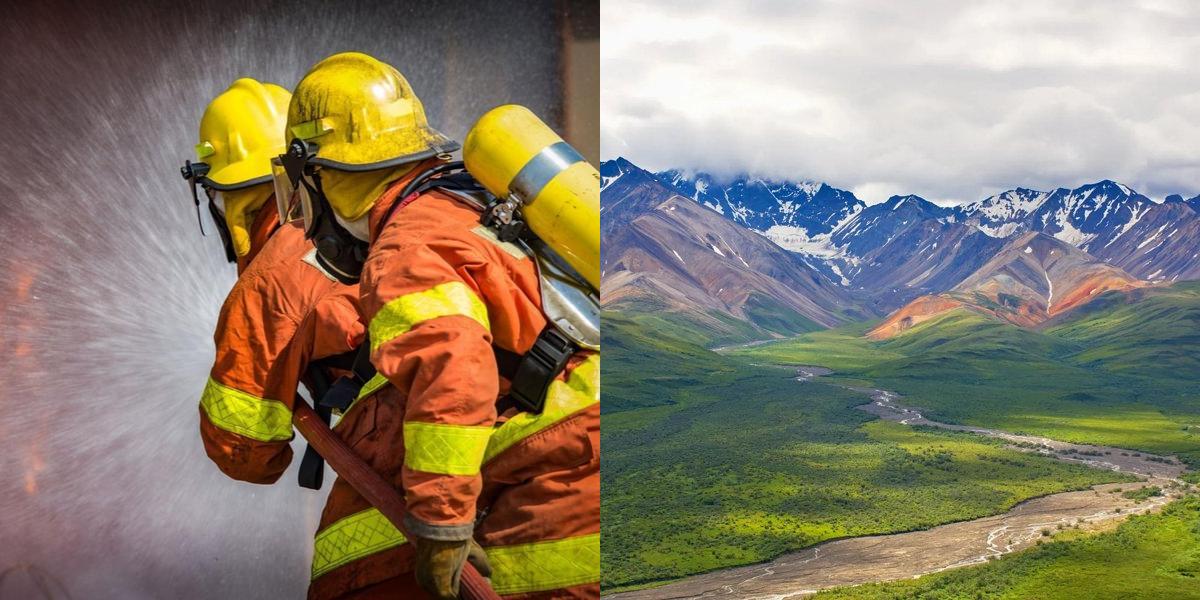How to Become a Firefighter in Alaska

Firefighters play a crucial role in protecting lives and property by responding to fires, accidents, and other emergencies. If you have a passion for helping others and are interested in pursuing a career as a firefighter in Alaska, here's what you need to know:
Step 1: Gain Relevant Experience
To make yourself more competitive, it is beneficial to gain relevant experience in the field of firefighting. Consider volunteering at your local fire department or participating in firefighting-related activities. This will not only provide you with hands-on experience but also demonstrate your commitment and dedication to the profession.
Step 2: Network
Networking is crucial in any job search, and the firefighting industry is no exception. Attend firefighter conventions, conferences, and training events to meet professionals in the field. Join professional organizations and online communities to connect with firefighters and industry experts. Building a strong network can provide you with valuable insights, job leads, and recommendations.
Step 3: Continuously Improve Your Skills
Firefighting is a dynamic field that requires ongoing learning and improvement. Stay updated with the latest firefighting techniques, equipment, and trends. Consider pursuing additional certifications or training programs to enhance your skills and knowledge. The more skills and qualifications you have, the more attractive you will be to potential employers.
Step 4: Prepare for the Physical Fitness Test
Fire departments often require applicants to pass a physical fitness test as part of the hiring process. Familiarize yourself with the specific fitness requirements of the departments you are interested in and train accordingly. Practice the exercises and tasks that are typically included in the test, such as running, ladder climbs, and simulated firefighting drills.
Step 5: Ace the Interview
The interview is a crucial stage in the hiring process. Prepare for the interview by researching the fire department and understanding their mission, values, and operations. Practice answering common interview questions and be prepared to provide examples of how you have demonstrated the desired skills and qualities. Dress professionally and arrive on time for the interview.
During the interview, emphasize your passion for firefighting, your commitment to public service, and your ability to work well in a team. Highlight any relevant experience and skills that make you a suitable candidate for the position. Show enthusiasm, confidence, and a genuine desire to contribute to the fire department.
Step 6: Be Persistent and Patient
Getting a job as a firefighter may take time and require persistence. It is common to face rejection or not hear back from fire departments after submitting applications. However, do not get discouraged. Continue applying to different departments and improving your skills and qualifications. Keep networking and seeking opportunities to gain experience in the field. With perseverance and determination, you can increase your chances of landing a job as a firefighter.
Career Paths and Opportunities after Becoming a Firefighter
Once you have become a firefighter, there are various career paths and opportunities available to you. Here are a few examples:
Fire Department Promotions
Within the fire department, there are opportunities for advancement and promotion. As you gain experience and demonstrate leadership qualities, you may be eligible for promotions to higher ranks, such as Fire Lieutenant, Fire Captain, Battalion Chief, or even Fire Chief. These positions come with increased responsibilities and often involve overseeing operations, managing personnel, and making strategic decisions.
Specialized Roles
Firefighting is a diverse field with various specialized roles. Some firefighters choose to specialize in areas such as hazardous materials, technical rescue, wildland firefighting, or emergency medical services. These specialized roles require additional training and certifications but offer unique challenges and opportunities for career development.
Training and Education
As a firefighter, you can also pursue opportunities in training and education. Many fire departments have training divisions or academies where firefighters can become instructors or training officers. These roles involve developing and delivering training programs to new recruits and existing personnel. Additionally, you can pursue further education in fields such as fire science, emergency management, or public administration to enhance your knowledge and qualifications.
Emergency Management
Firefighters often work closely with other emergency response agencies, such as police, paramedics, and emergency management departments. This collaboration can open up opportunities to transition into roles within emergency management. Emergency management professionals coordinate and manage responses to disasters and emergencies, ensuring the safety and well-being of the community.
How Much does a Firefighter Make?
The salary of a firefighter can vary based on factors such as location, experience, and the size of the fire department. According to the Bureau of Labor Statistics, the median annual wage for firefighters was $50,850 in May 2020. The lowest 10 percent earned less than $25,850, while the highest 10 percent earned more than $94,720.
For entry-level firefighters, the starting salary can be lower than the median wage. However, as they gain experience and move up the ranks, their salary can increase significantly. It's important to note that these figures are just averages, and the actual salary can vary depending on various factors.
Final Thoughts
Becoming a firefighter is a challenging but highly rewarding career choice. It requires dedication, physical fitness, and a genuine desire to serve the community. By following the steps outlined in this guide, you can obtain your firefighter certification and increase your chances of landing a job as a firefighter. Remember to continuously improve your skills, network, and stay persistent in your pursuit of this noble profession.
Exploring a variety of professional opportunities? Dreambound has many extensive guides to help you make informed decisions. Check out these guides:





